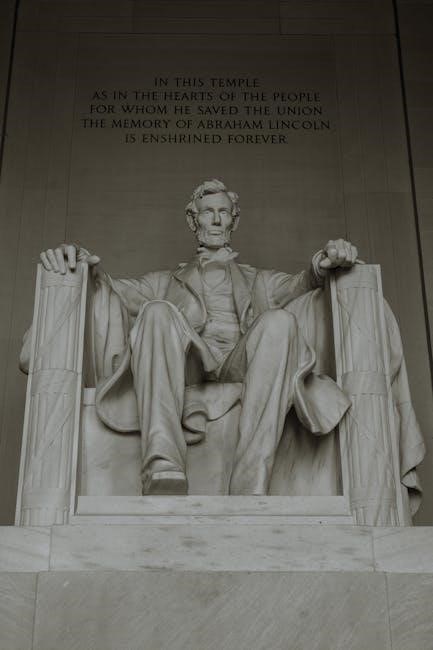multifactor leadership questionnaire pdf

The Multifactor Leadership Questionnaire (MLQ) is a widely used tool for assessing leadership styles‚ focusing on transformational‚ transactional‚ and passive-avoidant leadership. It provides insights into a leader’s effectiveness and is available as a PDF for easy access and evaluation.
Overview of the Multifactor Leadership Questionnaire (MLQ)

The MLQ is a comprehensive tool for assessing leadership styles‚ including transformational‚ transactional‚ and passive-avoidant approaches. It is widely used in research and organizational development to evaluate leadership effectiveness and is available in PDF format for convenient access and administration.
What is the Multifactor Leadership Questionnaire (MLQ)?
The Multifactor Leadership Questionnaire (MLQ) is a widely recognized psychological assessment tool designed to evaluate an individual’s leadership style. It focuses on measuring transformational‚ transactional‚ and passive-avoidant leadership behaviors. The MLQ is based on the Full Range Leadership Theory and assesses key factors such as idealized influence‚ inspirational motivation‚ intellectual stimulation‚ individualized consideration‚ contingent reward‚ management-by-exception‚ and laissez-faire leadership. This questionnaire is available in various formats‚ including the MLQ 5X-Short‚ which is a concise version designed for practical use in both research and organizational settings. The MLQ is often distributed in PDF format‚ making it easily accessible for self-assessment‚ research‚ and organizational development initiatives. It is a validated instrument that provides insights into a leader’s effectiveness and is extensively used in academic studies and workplace evaluations. The MLQ helps identify strengths and areas for improvement‚ making it a valuable resource for leadership development.
Purpose of the MLQ
The primary purpose of the Multifactor Leadership Questionnaire (MLQ) is to assess and evaluate an individual’s leadership style and effectiveness. It is designed to measure the extent to which a leader exhibits transformational‚ transactional‚ and passive-avoidant behaviors. The MLQ helps identify strengths and areas for improvement‚ providing insights into how leaders influence their followers and achieve organizational goals. By focusing on key factors such as idealized influence‚ inspirational motivation‚ and contingent reward‚ the MLQ offers a comprehensive understanding of leadership dynamics. Its purpose also extends to research‚ enabling scholars to explore the impact of different leadership styles on organizational outcomes. Additionally‚ the MLQ is widely used in organizational development to enhance leadership training and improve team performance. The questionnaire serves as a valuable tool for both self-assessment and external evaluation‚ making it a cornerstone in leadership development initiatives. Its structured format ensures reliable and actionable feedback‚ aiding leaders in refining their approaches to foster a more productive and engaged work environment.
Key Features of the MLQ
The Multifactor Leadership Questionnaire (MLQ) is a robust and widely recognized tool for assessing leadership styles‚ emphasizing transformational‚ transactional‚ and passive-avoidant behaviors. One of its key features is its ability to measure seven distinct factors: idealized influence‚ inspirational motivation‚ intellectual stimulation‚ individualized consideration‚ contingent reward‚ management-by-exception‚ and laissez-faire leadership. The MLQ is structured to provide a comprehensive evaluation of a leader’s effectiveness‚ offering insights into their strengths and areas for development. It is available in a convenient PDF format‚ making it easily accessible for both self-assessment and organizational use. The questionnaire includes 21 descriptive statements‚ allowing respondents to rate their leadership behaviors on a frequency scale. Additionally‚ the MLQ is backed by extensive research‚ ensuring its reliability and validity as a leadership assessment tool. Its design supports both research applications and practical organizational development‚ making it a versatile resource for understanding and enhancing leadership capabilities. These features collectively make the MLQ a trusted instrument in leadership development and research.

Key Components of the MLQ
The MLQ assesses leadership styles across seven key factors: idealized influence‚ inspirational motivation‚ intellectual stimulation‚ individualized consideration‚ contingent reward‚ management-by-exception‚ and laissez-faire leadership. It includes 21 descriptive statements rated on a frequency scale‚ providing a structured tool for evaluating leadership behaviors.
Leadership Styles Assessed by the MLQ
The Multifactor Leadership Questionnaire (MLQ) evaluates three primary leadership styles: Transformational‚ Transactional‚ and Passive-Avoidant (Laissez-Faire). Transformational leadership is characterized by idealized influence‚ inspirational motivation‚ intellectual stimulation‚ and individualized consideration. It focuses on inspiring and empowering followers to achieve shared goals. Transactional leadership‚ on the other hand‚ involves contingent reward and management-by-exception‚ emphasizing exchanges between leaders and followers for task completion; Passive-Avoidant leadership‚ often considered ineffective‚ involves avoiding decision-making and responsibility. The MLQ also measures seven key factors: idealized influence‚ inspirational motivation‚ intellectual stimulation‚ individualized consideration‚ contingent reward‚ management-by-exception‚ and laissez-faire leadership. These factors provide a comprehensive understanding of a leader’s behavior and effectiveness. By assessing these styles and factors‚ the MLQ helps identify strengths and areas for development‚ making it a valuable tool for leadership growth and organizational improvement; Its structured approach ensures accurate insights into leadership dynamics.
Factors Measured in the MLQ
The Multifactor Leadership Questionnaire (MLQ) measures seven key factors of leadership‚ providing a comprehensive assessment of a leader’s behavior and effectiveness. These factors include idealized influence‚ inspirational motivation‚ intellectual stimulation‚ individualized consideration‚ contingent reward‚ management-by-exception‚ and laissez-faire leadership. Idealized influence reflects a leader’s ability to inspire and gain trust through their vision and values. Inspirational motivation involves motivating others by articulating a compelling vision. Intellectual stimulation encourages followers to think critically and innovate. Individualized consideration focuses on personalized attention and development of team members. Contingent reward involves recognizing and rewarding achievements‚ while management-by-exception entails monitoring and addressing mistakes. Laissez-faire leadership‚ often seen as passive‚ involves avoiding responsibility and decision-making. These factors help distinguish between transformational‚ transactional‚ and passive-avoidant leadership styles. By evaluating these dimensions‚ the MLQ offers insights into a leader’s strengths and areas for improvement‚ making it a valuable tool for leadership development and organizational growth. Its structured approach ensures accurate and actionable feedback.

Structure of the MLQ Questionnaire
The Multifactor Leadership Questionnaire (MLQ) is structured to assess leadership styles through a series of statements and scales. The MLQ 5X-Short form‚ one of its most common versions‚ includes 21 statements that evaluate leadership behavior across seven factors. Each statement is rated on a 5-point Likert scale‚ ranging from “Not at All” to “Frequently‚ if not Always.” The questionnaire is designed for self-assessment or for others‚ such as subordinates or peers‚ to evaluate a leader’s behavior. It is divided into sections corresponding to the three main leadership styles: transformational‚ transactional‚ and passive-avoidant. Transformational leadership is further broken down into idealized influence‚ inspirational motivation‚ intellectual stimulation‚ and individualized consideration. Transactional leadership includes contingent reward and management-by-exception‚ while laissez-faire leadership represents the passive-avoidant style. The structured format ensures consistency and reliability in measuring leadership behaviors‚ making it a robust tool for research and organizational development. The MLQ is available in PDF format‚ facilitating easy distribution and administration.

Scoring and Interpretation of the MLQ
The Multifactor Leadership Questionnaire (MLQ) is scored by summing responses to statements corresponding to each leadership factor. The 5-point Likert scale (1 = “Not at All” to 5 = “Frequently‚ if not Always”) is used to rate each statement. Scores are calculated for the seven factors: idealized influence‚ inspirational motivation‚ intellectual stimulation‚ individualized consideration‚ contingent reward‚ management-by-exception‚ and laissez-faire leadership. Higher scores indicate stronger tendencies toward a particular leadership style. The MLQ Leaders Workbook is a resource for interpreting scores‚ helping leaders identify strengths and areas for development. Interpretation focuses on understanding the balance between transformational‚ transactional‚ and passive-avoidant leadership styles. The MLQ also provides benchmarks for comparing individual scores to norms‚ offering a framework for personal growth and organizational development. Proper training or guidance is recommended for accurate interpretation‚ ensuring effective use of the tool in both research and practical settings.

Validation and Reliability of the MLQ
The MLQ has demonstrated strong reliability and validity across various studies. Its psychometric properties have been consistently validated‚ ensuring accurate measurement of leadership styles. The questionnaire is widely recognized for its robustness in research and organizational settings.
Reliability of the MLQ
The Multifactor Leadership Questionnaire (MLQ) has consistently demonstrated high reliability across various studies. Its internal consistency and test-retest reliability ensure that the instrument measures leadership styles accurately and consistently over time. The questionnaire’s reliability has been validated across diverse populations and cultures‚ making it a dependable tool for both research and organizational development. The MLQ’s ability to yield consistent results is a testament to its robust design and rigorous testing. This reliability is crucial for ensuring that the insights gained from the questionnaire are trustworthy and actionable. By providing stable and consistent measurements‚ the MLQ has become a preferred choice for assessing leadership styles in academic and professional settings. Its reliability underscores its value as a tool for understanding and improving leadership effectiveness.
Validity of the MLQ
The Multifactor Leadership Questionnaire (MLQ) has been extensively validated as a reliable measure of leadership styles‚ particularly in assessing transformational‚ transactional‚ and passive-avoidant leadership. Its structural validity has been confirmed through factor analysis‚ ensuring that it accurately captures the intended leadership dimensions. The questionnaire has been widely used in research to explore participants’ perceptions of leadership and its outcomes‚ including satisfaction‚ evaluation‚ and willingness to exert extra effort. Studies have consistently supported the MLQ’s ability to measure leadership styles effectively across diverse contexts and cultures. Its validity is further reinforced by its alignment with the Full Range Leadership Theory‚ which distinguishes between transformational‚ transactional‚ and laissez-faire leadership. The MLQ’s validity has been tested and confirmed in various organizational and academic settings‚ making it a trusted instrument for leadership assessment and development. Its ability to provide meaningful insights into leadership behaviors and outcomes underscores its value as a validated tool for both research and practical applications.

Applications of the MLQ
The MLQ is widely applied in research and organizational development to assess leadership styles‚ fostering effective leadership strategies. It aids in identifying strengths and areas for improvement‚ enhancing team performance and organizational growth through structured feedback.
Research Applications
The Multifactor Leadership Questionnaire (MLQ) is extensively used in research to explore leadership styles and their impact on organizational outcomes. It measures transformational‚ transactional‚ and passive-avoidant leadership‚ providing insights into how leaders influence their teams. Researchers utilize the MLQ to assess leadership effectiveness‚ employee satisfaction‚ and willingness to exert extra effort. The questionnaire is particularly valuable in cross-cultural studies‚ as it has been validated in multiple languages. Its structured format allows for reliable data collection‚ making it a preferred tool for academic and organizational research. The MLQ is also used to examine the relationship between leadership styles and performance metrics‚ such as productivity and job satisfaction. By leveraging the MLQ‚ researchers can identify patterns and trends in leadership behaviors‚ contributing to the development of evidence-based leadership theories. The availability of the MLQ in PDF format further facilitates its use in global studies‚ ensuring consistent and standardized data collection across diverse settings. This makes the MLQ an indispensable resource for advancing leadership research.
Organizational Development Applications
The Multifactor Leadership Questionnaire (MLQ) is a valuable tool for organizational development‚ enabling companies to assess and enhance leadership effectiveness. By identifying strengths and areas for improvement‚ organizations can create targeted development plans to foster transformational and transactional leadership styles. The MLQ helps organizations evaluate how leaders inspire‚ motivate‚ and manage their teams‚ which is critical for improving employee engagement and performance. Additionally‚ the questionnaire is used to support leadership training programs‚ helping leaders adopt more effective behaviors and strategies. Organizations also use the MLQ to assess the impact of leadership on organizational outcomes‚ such as job satisfaction‚ productivity‚ and retention. The availability of the MLQ in PDF format makes it accessible for organizations to implement these assessments efficiently. By leveraging the insights from the MLQ‚ organizations can cultivate a leadership culture that drives innovation‚ collaboration‚ and success. This tool is essential for fostering growth and achieving long-term organizational goals.

Accessing the MLQ PDF
The Multifactor Leadership Questionnaire (MLQ) is widely available in PDF format‚ enabling easy access for individuals and organizations. The official MLQ PDF can be downloaded from MindGarden.com‚ a trusted source for psychological assessments. This website provides various forms of the questionnaire‚ including the MLQ 5x-Short and MLQ 6S‚ catering to different needs. To access the MLQ PDF‚ users must purchase it through MindGarden‚ as it is a copyrighted instrument. The PDF format allows for straightforward administration‚ scoring‚ and analysis of leadership styles. Additionally‚ the MLQ PDF is often used in research and organizational development to evaluate transformational‚ transactional‚ and passive-avoidant leadership behaviors. Instructions for scoring and interpreting the results are typically included in the PDF document. It is important to note that the MLQ PDF is a registered trademark of Bernard Bass and Bruce Avolio‚ ensuring its reliability and validity. By accessing the MLQ PDF‚ users can gain valuable insights into leadership effectiveness and development.

Best Practices for Using the MLQ
To ensure effective use of the Multifactor Leadership Questionnaire (MLQ)‚ several best practices should be followed. First‚ administer the questionnaire in a controlled environment to minimize distractions and ensure honest responses. Anonymity should be guaranteed to encourage participants to provide truthful feedback. The administrator should be trained in interpreting MLQ results to avoid misinterpretation. Clear instructions must be provided to participants‚ explaining the purpose of the assessment and how to complete it accurately. The official MLQ PDF‚ available from MindGarden‚ should be used to maintain reliability and validity. After administration‚ a debriefing session is recommended to discuss results and their implications. Leaders should use the feedback constructively to identify strengths and areas for improvement. Additionally‚ organizations should consider using the MLQ as part of a broader leadership development program. By adhering to these best practices‚ the MLQ can serve as a powerful tool for enhancing leadership effectiveness and fostering organizational growth. Proper documentation and follow-up are essential to track progress and ensure the questionnaire’s effectiveness.

Impact and Influence of the MLQ
The Multifactor Leadership Questionnaire (MLQ) has had a profound impact on leadership research and practice. As a widely recognized tool for assessing transformational‚ transactional‚ and passive-avoidant leadership styles‚ it has influenced numerous studies and organizational development initiatives. Its ability to measure leadership effectiveness across diverse contexts has made it a cornerstone in the field of leadership development. The MLQ has shaped theories and practices‚ helping leaders and organizations identify strengths and areas for improvement. Its influence extends globally‚ with translations and adaptations enabling its use in various cultural settings. The availability of the MLQ in PDF format has further enhanced its accessibility‚ making it a preferred choice for researchers and practitioners alike. Over the years‚ the MLQ has contributed significantly to understanding leadership dynamics‚ fostering better leadership practices‚ and driving organizational success. Its enduring relevance underscores its importance as a foundational tool in leadership assessment and development.
The Multifactor Leadership Questionnaire (MLQ) stands as a cornerstone in leadership assessment‚ offering a comprehensive framework to evaluate transformational‚ transactional‚ and passive-avoidant leadership styles. Its widespread adoption in research and organizational development underscores its reliability and validity. The MLQ’s availability in PDF format has enhanced its accessibility‚ making it a preferred tool for scholars and practitioners worldwide. By providing insights into leadership effectiveness‚ the MLQ has significantly influenced leadership theory and practice‚ guiding leaders in identifying strengths and areas for improvement. Its global reach‚ with translations into multiple languages‚ further highlights its versatility and applicability across diverse cultural contexts. As a result‚ the MLQ remains an indispensable resource for fostering leadership growth and driving organizational success. Its enduring relevance ensures its continued impact in shaping effective leadership practices for years to come.





